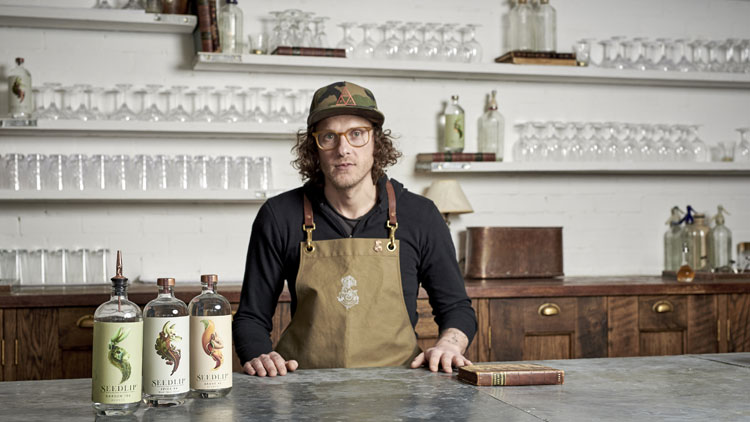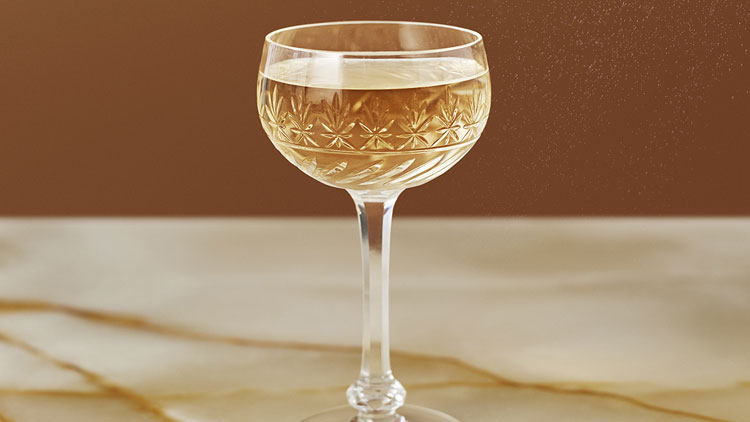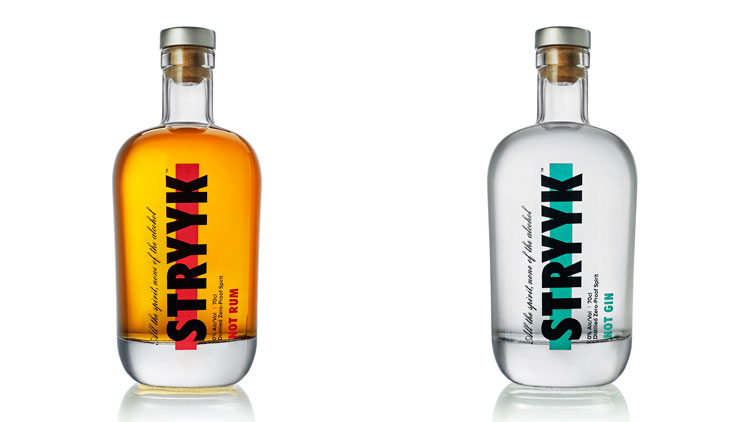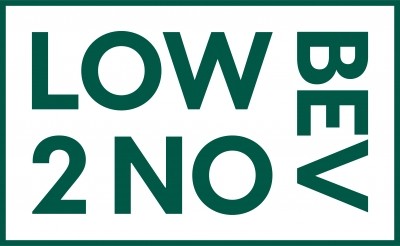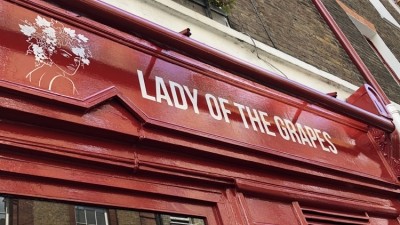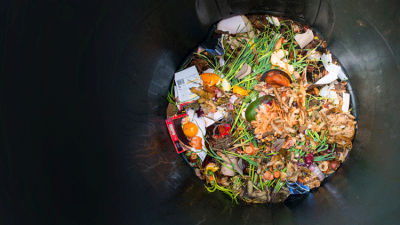Zero tolerance: How alcohol-free spirits are shaking up the market
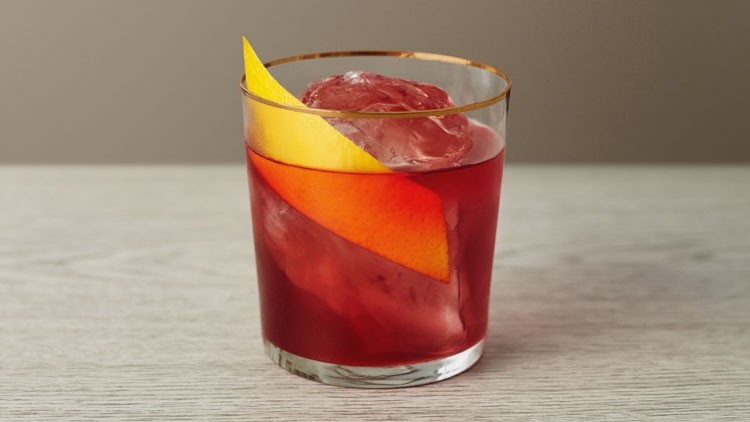
Forget gin or vodka, or mixologist or botanicals, the current buzzword in the drinks world is ‘no’. That might sound unlikely but you need only glance at the names of the current cool cocktails and latest developments in the drinks category for proof (or, indeed, lack of proof ). Take non-alcoholic spirits company Seedlip’s suggested cocktails, which include the Martino and the Nogroni – booze-free alternatives to classic cocktails. Then there’s the Nojito and newly launched ‘spirits’ Not Gin and Not Rum. When it comes to embracing the new, consumers are embracing the no.
This is largely down to the work of Seedlip’s founder Ben Branson and a growing number of drinks producers who have worked to create the zero-proof spirits category – drinks that looks like spirits and share many of their similarities but without any of the hard stuff. And consumers can’t get enough.
According to Branson, around 30 non-alcoholic spirit products have launched around the globe in the past three months alone , in countries including South Africa, Australia, Denmark, Spain, Italy and Ireland. “There has been an avalanche of noise and activity – it has been meteoric.”
Launched in 2015, Seedlip has been one of the UK’s biggest drinks success stories since Fever-Tree. In 2016, Diageo, the world’s largest distiller, took a minority stake in the company, and the brand is now available in 20 countries and in 5,000 retail, restaurant and bar accounts across the globe, something Branson describes as being an ‘amazing surprise’. Little did he know, three years ago at the launch of the first Seedlip variant, Garden 108, that the drink – and the zero-proof spirits category – would become such a phenomenon.
He says: “It shows the sheer latent demand from the customer – people who like cocktail culture and cool bars but who are trying to drink a bit less. It has come at a really poignant time as people are drinking less alcohol – it meets a need in people’s lives. The timing was perfect.”
Branson created Seedlip in response to the lack of proper non-alcoholic alternatives on the market as recently as three or four years ago. “There was Beck’s Blue and Kaliber and a few non-alcoholic wines but no one was really championing them or saying there was another way to do this,” he recalls. “I hoped to throw a spotlight on the need to expose fruity sweet mocktails and lime and soda, and the lazy on-trade offerings of non-alcoholic drinks.”
Smells like pre-teen spirit
Despite the now-burgeoning market for non-alcohoic spirits, Seedlip lays claim to being the category pioneer. Its approach is still very different from some of the more recent entrants, which choose to mimic spirit cues, such as the juniper flavour of gin, with their creations.
Instead, Branson starts with a childhood memory of a smell or flavour of personal significance. This main ingredient becomes an anchor to base a flavour profile around. So, for example, Spice 94, a combination of all spice, cardamom, oak, lemon, grapefruit and cascarilla takes Branson’s memories of the smell of ingredients at harvest time, while the citrus-led Grove 42 is redolent of his memories of his mother feeding him oranges in the supermarket to keep him happy. “The great thing is that I have the freedom of not having to be led by another category,” he says.
It was a conscious decision by Branson to create drinks that didn’t mimic the taste of alcoholic options, primarily to avoid customer disappointment. “I looked at the comments from people about nonalcoholic beers and wines and main responses were ‘yes, but it’s not alcohol’.
“People were disappointed as they were set up to believe that the product would taste like beer or wine but the product fell short. I didn’t want Seedlip to mimic anything. If you take the thing out of the thing that makes it the thing then it can’t be the thing – alcohol has a taste, a function and an effect – no one has managed to imitate that.”
Instead, Seedlip’s flavours are familiar without referencing existing alcoholic drinks. “A lot of the new products that are coming out use juniper to mimic gin, but that has never been part of our flavour development and never will be.”
That said, some of Seedlip’s cocktail creations do reference an alcohol inspiration, such as its Nogroni, made with Seedlip Spice 94, bitter aperitif and a non-alcoholic sweet vermouth.
Other new entrants that take this approach include zero-proof spirit Borrago – named after the Latin classification name for borage – which can be used like a gin or vodka as a base for cocktails, but does not try to mimic them, says the company. Instead, the drink is made using six botanicals, which the company has kept secret, which it says are individually steam distilled and processed to keep their properties.
Berkshire Blend is another designed to be used as a mixer for non-alcoholic cocktails but doesn’t mimic gin or vodka. Created by Rex Carter, the yellow-hued spirit alternative has a cucumber and citrus base with spice top notes and is to be used in cocktails such as the Berkshire Sling (lime juice, blackcurrant jam, honey, orange zest, gomme, soda) and the Berkshire Gimlet (gomme, lime juice, mint leaves and chopped ginger).
The spirit of copying
Many entrants into the zero-proof spirits category do, however, take existing spirits as their jumping off point. One such drink that takes its cues from gin is Silk Tree Botanics.
Launched a few months ago in Ireland, the production process mimics that of gin making but without the alcohol, with the drink featuring gin-friendly botanicals including juniper berries, Ceylon cinnamon, coriander seeds, orange peel and lemon verbena.
Others include Sea Arch, which has also been created to taste like gin but with none of the hard stuff. It contains botanicals such as sea kelp, juniper berries, cardamom, angelica root, cucumber, grapefruit and blood orange; and Caleno, a soon-to-launch Colombia-inspired drink made with Inca berries, coriander, juniper berries, green cardamom and Sicilian lemons.
Stryyk, a new zero-proof spirit brand launched in the summer, unashamedly mimics the taste of existing spirits. Created by Alex Carlton, who was the founder of Funkin Cocktails, it is available in two variants: one clear spirit, Stryyk Not Gin, and one dark spirit, Stryyk Not Rum, in bottles designed for the back bar. It already has listings in restaurants including La Fromagerie, Caravan Group, Bounce, Puttshack and Clos Maggiore.
“What we’ve tried to do is focus on bringing a product to market that really mimics alcohol,” says Carlton. “One of the key elements is the ‘heat’ of the drink – when you drink spirits, you get that warming feeling in the mouth and the neck burn – this is one of the key USPs of Stryyk. As you sip some Not Rum over ice it slowly builds in flavour and heat, as it does when drinking rum itself.”
So far, the company is keeping the ingredients used to create the heat sensation a secret but says that both drinks are the result of more than a year’s worth of development. Its next launch, however, a Not Vodka, which is due to hit the market in the next couple of months, has been the most challenging, according to Carlton. “If you take vodka, the best way to describe it is that is has a ‘dirty alcohol smell’. We have deconstructed vodka to discover how it tastes and feels in the mouth and then used distillates that have really managed to mimic its taste.”
Just as the drinks take inspiration from alcohol, so too should the serves, with Not Gin suggested to be mixed with tonic for a non alcoholic G&T. “People can use it in the same way that they drink the spirit – there is no right or wrong way.”
Beyond vodka and gin, Carlton believes there is scope to produce other non-alcoholic spirit alternatives, including whisky and brandy and even tequila. “There is no reason why you can’t replicate any spirit. Whisky would be a good one as there is so much to go on, so much smokiness and other complexities to work with.”
Next up from Seedlip will be its Harvest 36 – the company’s first foray into the dark non-alcoholic spirit world that it gave a sneak preview of earlier this year at the World’s 50 Best Restaurants awards in Bilbao. The limited release blend of malted barley, vanilla, coffee, oak, smoked manuka wood and spent cognac cask notes will become a permanent variant next year.
Branson also says that he is looking into creating new liquids for different categories not under the Seedlip name, with the first one likely to hit the market within the next nine months. The company is working with Claire Smith-Warner, former director of spirits education at Moët-Hennessy, to create drinks that use different techniques and meet different drinkers’ requirements –although what the first one will be is being kept under wraps for the time being.
“We are looking to further grow the category and look at other aspects of the market,” says Branson. “I’m still playing around with flavours in my garage but we have some really exciting things coming on stream next year.”
